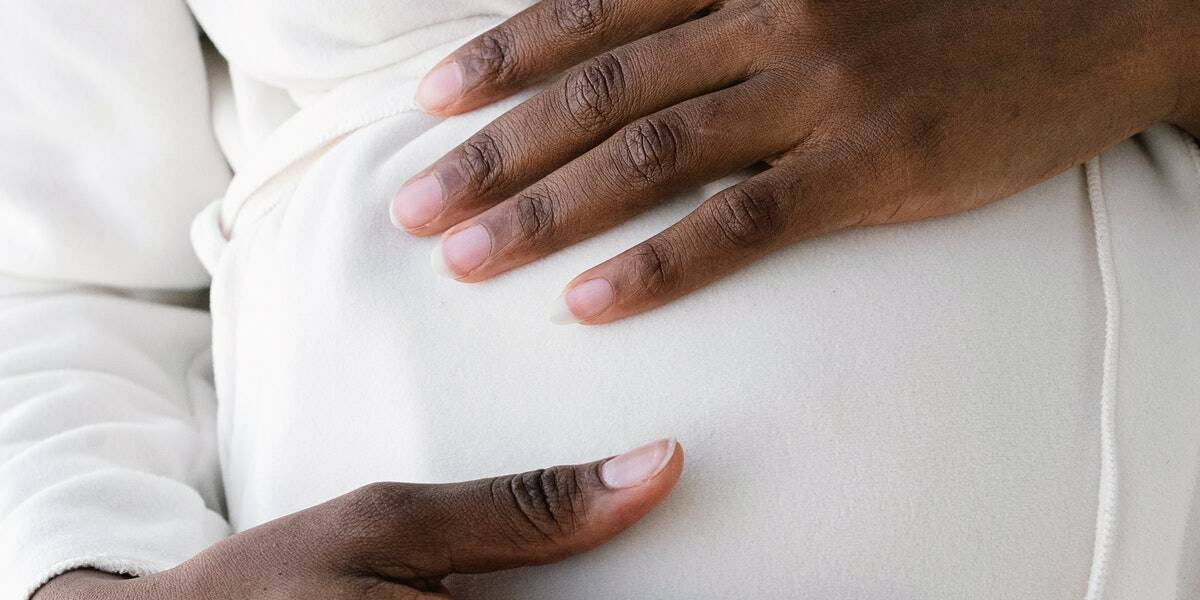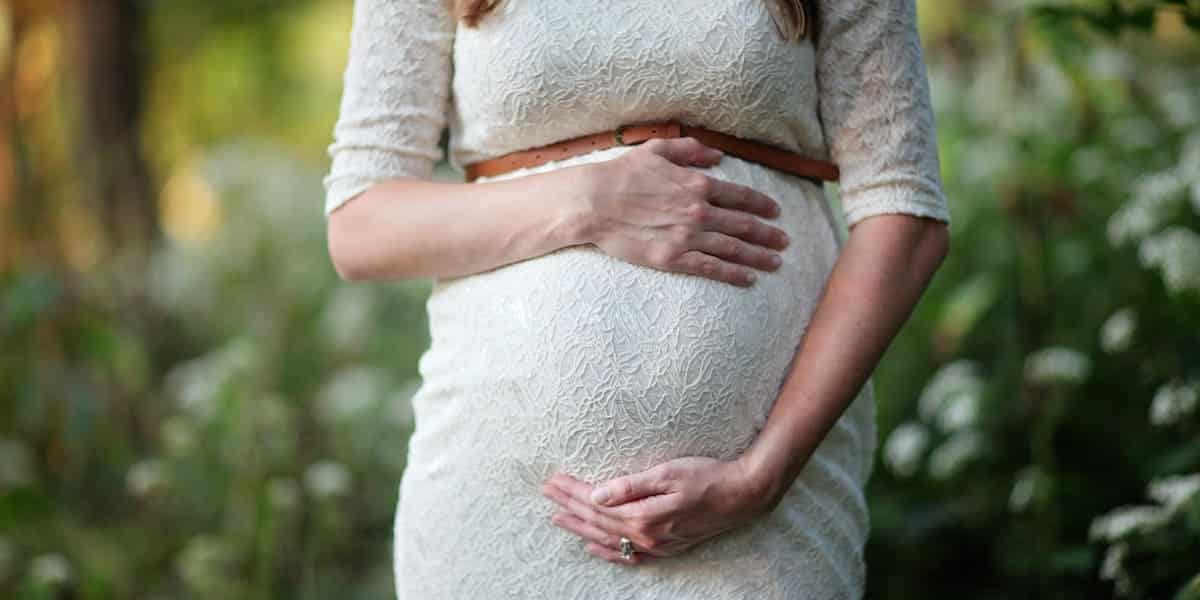The contractions have started. Your baby is on its way into this world. Yet, between the contractions, your wee one is moving like crazy.
It has you a bit concerned. Is it a normal experience?
There is no cause to worry as this is a natural part of labor. Your baby has spent months waiting for this moment. It’s not surprising then that they could be a bit restless.
There are several reasons why your child is moving so much.
As an Amazon Associate, I earn from qualifying purchases. The links below may be affiliate links. Please read my disclosure policy for more information.
They are letting you know their preferences

As your baby develops within the womb, it can start to let you know what they don’t like. A little foot kicking you from the inside is them telling you “I’m not a fan of what’s happening out there”.
At Week 20 of pregnancy, the fetus can respond to noise. If something is too loud, they’ll let you know!
It’s strength building
Around weeks 15 to 16 of the pregnancy, your baby will start to move his or her arms and legs.
To build up strength and coordination in these body parts, your baby will let out a kick or two.
Your baby has nothing to do
Imagine waiting in a small room for nine months. There’s very little for you to do and you want to get out, but you have to wait until it’s time.
That’s what it’s like for your baby. Waiting in your womb can get tedious at times.
Moving around and kicking can be the baby’s form of entertainment.
Your baby has woken up
A w in the womb has a 40-minute sleep-wake cycle. Throughout the pregnancy, the movement you feel within you can be your baby waking up and stretching her legs.
When you’re in labor it’s like “Good morning” time for your baby. They are awake and ready to go.
In between contractions you can receive a few healthy kicks from the baby.

Your baby is getting into position
As a baby grows within the womb, things can get slightly cramped. To get into a comfortable position the baby can wriggle and squirm.
They are turning themselves about so that their head is closer to your pelvis.
Your baby is pushing her way out
Once your contractions start, you may find your baby is moving around like crazy.
What is happening is she is working out the best way to squeeze through the birth canal.
There is something wrong
Every expectant mother wants the birth to go smoothly. But there can be times when the delivery has a complication.
Pay close attention to the movements of your baby. If during the delivery, they seem sudden and erratic it can be an indication that there is something wrong.
Let the midwife or other medical staff know immediately if you sense there is a problem.
It could be a seizure
Though a developing fetus may suffer from seizures, this is a very rare case.
How do you know if your baby’s sudden movement is normal or a seizure? It comes down to your familiarity with the typical activity of your child.
Let your motherly instinct guide you in your diagnosis. If you are at all concerned, contact your obstetrician/gynecologist.

A lack of oxygen during birth
If your baby’s oxygen supply is reduced during labor, it will react. A lack of oxygen is a problem that occurs in 4% to 23% of births.
It can be caused by:
- low oxygen levels in the mother’s blood
- the baby being caught up in the umbilical cord
- infection
- the mother’s blood pressure is too high or too low
The medical staff assisting with the birth needs to monitor the situation closely.
Let them know if you experience any unusual movements from your baby.
A timeline of a developing baby’s movements throughout the pregnancy
As your baby develops within the womb, the movements can get more pronounced and more robust.
The first movements may feel like butterflies in your stomach. Later on, you get that kick in the ribs or a squirming around inside as your baby readjusts herself.
Here is a chronological look at your baby’s movements as you progress through the pregnancy. Use this as a general guide to aid you in monitoring your baby’s behavior and health.
Week 5 – 8
At this point in the first trimester, the baby will start to move around. Usually, the mother won’t feel it, but they could.
Week 15-16
You have just entered the second trimester of your pregnancy. Around weeks 15-16, your developing baby begins to move its arms and legs. Maybe you receive a small kick.

Week 17 – 24
Your baby is becoming more active. The kicks are more frequent.
From the 24th week, the moving around of your baby becomes a daily occurrence.
The baby can also hear noise coming from the outside world as well as internally (such as the mother’s heartbeat).
Week 25 – 32
Your baby continues to move around a lot. It may be tossing and turning within you or poking sensations.
Weeks 27 – 28
At this stage of the pregnancy, your baby can open and close her eyes. She can also move her head towards constant brilliant light.
Weeks 29 – 30
Your baby may get a case of the hiccups.
Weeks 33 – 40
The baby will still be actively moving around.
Your baby can change their position so that her head is facing your pelvic region. They are getting themselves for the imminent birth.
I can’t feel my baby moving. Should I be worried

Typically from week 16 is when your baby starts to move. These movements can be irregular until you enter the third trimester.
You can self-monitor the situation by keeping a count of the number of kicks you receive in an hour. These should be 10 kicks over a two-hour period at least twice a day.
Anything less than that could indicate that there is something wrong.
Of course, your baby could be having a nap or taking some time out. You may find that the activity is more pronounced after you have had a meal or drank something that contains sugar.
Each situation and baby can be unique. Some babies don’t kick much whilst others make you feel like you’re a victim of a full-on soccer match.
If you notice that the amount of movement from your baby has decreased, it can be an indication that something is wrong. Talk to your medical professional and get their input.
Other factors that could explain why you don’t notice your baby moving are:
- You are busy and focused on what you are doing
- The placenta is absorbing the kicks
If you haven’t felt anything after week 22 then you should visit your healthcare provider.
You know your baby
When the contractions start, your baby may move like crazy. It’s a sign that she is healthy and ready to come out and meet you and her father.
You are familiar with your baby’s movements. If you sense something is wrong then let the medical staff know. Though they are monitoring everything they can’t feel what you can.
Be guided by your intuition.
Soon the movement from within will be over. Your baby has been born.
There is a new movement to witness…you holding your wee treasure next to you.
